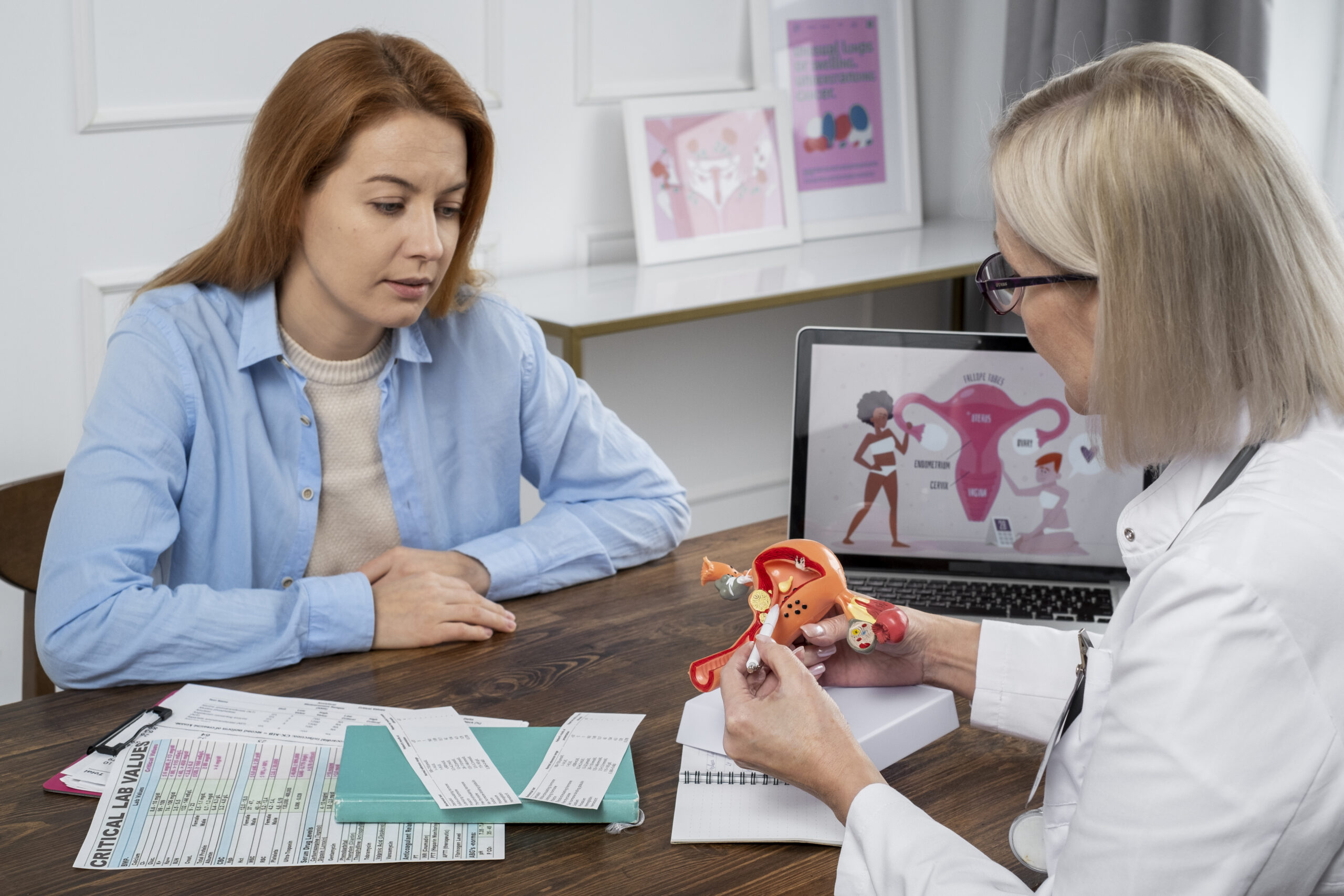Endometriosis is a complex and often misunderstood condition that affects millions of women worldwide. There are various types of endometriosis identified.

Superficial Endometriosis
This is the most common form, characterized by the presence of endometrial tissue on the surface of pelvic organs. It can lead to the formation of adhesions and scar tissue, causing pain and discomfort.
Deep Infiltrating Endometriosis
Unlike superficial endometriosis, deep infiltrating endometriosis involves the penetration of endometrial tissue into the surrounding organs, such as the bladder, bowel, or ovaries. This form of endometriosis often results in severe pain and may require specialized treatment.
Ovarian Endometriomas
It is also known as chocolate cysts, which occur when endometrial tissue forms cysts on the ovaries. These cysts can affect ovarian function and may contribute to fertility issues.
Adenomyosis
Although technically a separate condition, adenomyosis is closely related to endometriosis. It involves the infiltration of endometrial tissue into the muscle wall of the uterus, causing the uterus to become enlarged and leading to painful menstruation.
Pelvic Endometriosis
Pelvic endometriosis encompasses endometrial growths on various pelvic organs, including the uterus, fallopian tubes, and pelvic peritoneum. The widespread nature of pelvic endometriosis can result in a range of symptoms, from pelvic pain to fertility challenges.
Extra-Pelvic Endometriosis
While endometriosis typically affects pelvic organs, it can also occur outside the pelvic region. Extra-pelvic endometriosis has been reported in areas such as the bowel, lungs, diaphragm, and even the brain. Although rare, awareness of these cases is crucial for accurate diagnosis and treatment
Understanding the different types of endometriosis is essential for both patients and healthcare professionals. Timely and accurate diagnosis is crucial for effective management and improved quality of life for those affected by this challenging condition. If you suspect you may have endometriosis or are experiencing related symptoms, consult with a healthcare provider for a comprehensive evaluation and personalized treatment plan.


